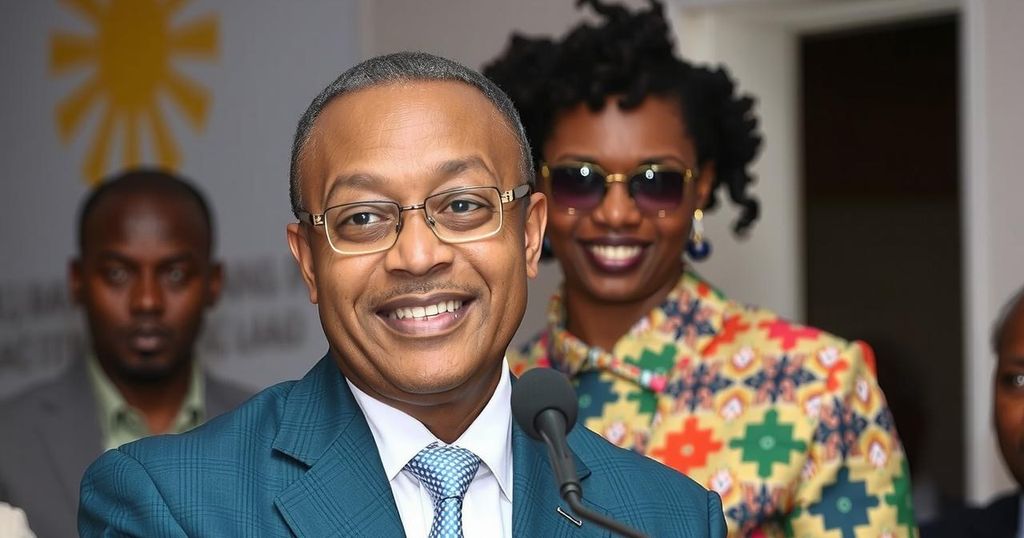Namibia’s main opposition party, the IPC, has stated it will not recognize the results of the recent general elections, citing serious allegations of electoral malpractice. Panduleni Itula, the IPC presidential candidate, claims significant logistical issues during voting, including a lack of ballot papers and faulty equipment. While current results show Swapo’s Netumbo Nandi-Ndaitwah leading, the IPC calls for investigations and encourages voters affected by the alleged mismanagement to come forward.
The recent general elections in Namibia have sparked significant controversy, as the main opposition party has declared that it will not accept the results. Panduleni Itula, the presidential candidate for the Independent Patriots for Change (IPC), has raised serious allegations of electoral malpractice, claiming there were glaring issues during the polling process. With logistical complications causing delays in voting in several areas, the IPC has called for a thorough investigation into these irregularities.
As the counting of votes progresses, Netumbo Nandi-Ndaitwah of the South West Africa People’s Organisation (Swapo) currently leads with 48% of the votes cast, while Itula holds 30%. The IPC argues that these results should not be deemed legitimate due to the organizational flaws encountered. They are urging citizens who experienced voting difficulties to report incidents to the police, reinforcing their commitment to pursue legal action if necessary.
Namibia, a nation rich in historical context, faces challenges as its ruling party seeks to maintain power amidst waning electoral support. The impact of past liberation movements continues to shape the political landscape, reminiscent of recent electoral shifts seen in neighboring South Africa and Botswana. While Namibia has made strides since its independence in 1990, the current electoral climate reveals deeper issues within the nation’s democratic processes and governance.
Namibia gained independence from South African control in 1990, with the South West Africa People’s Organisation (Swapo) emerging as the ruling party following a protracted liberation struggle. Over the past three decades, Swapo has maintained its dominance in Namibian politics, winning successive elections. However, indications of declining support have emerged, especially in the most recent 2019 elections, where the party’s presidential vote share fell below 60%. This trend parallels changes seen in other liberation movements in the region, suggesting that political dynamics in Southern Africa are evolving. With approximately three million inhabitants, a substantial number of whom are eligible to vote, the nation has seen calls for electoral reform amidst growing public discontent. The IPC, founded recently by disenchanted former Swapo members, seeks to represent those who feel marginalized by the existing government. The 2024 elections have been met with disapproval due to logistical issues compounded by allegations of malpractice, raising significant concerns about the legitimacy of the current electoral process.
The refusal of the IPC to recognize the Namibia election results underlines significant concerns about electoral integrity and governance in the country. As the political landscape evolves, the ruling Swapo party faces mounting challenges to its long-standing dominance. The allegations of electoral malpractice and the subsequent call for legal redress by the IPC reflect a critical moment in Namibia’s democratic journey. The outcome of these tensions will be pivotal in shaping future governance and public trust in electoral processes.
Original Source: www.bbc.co.uk






